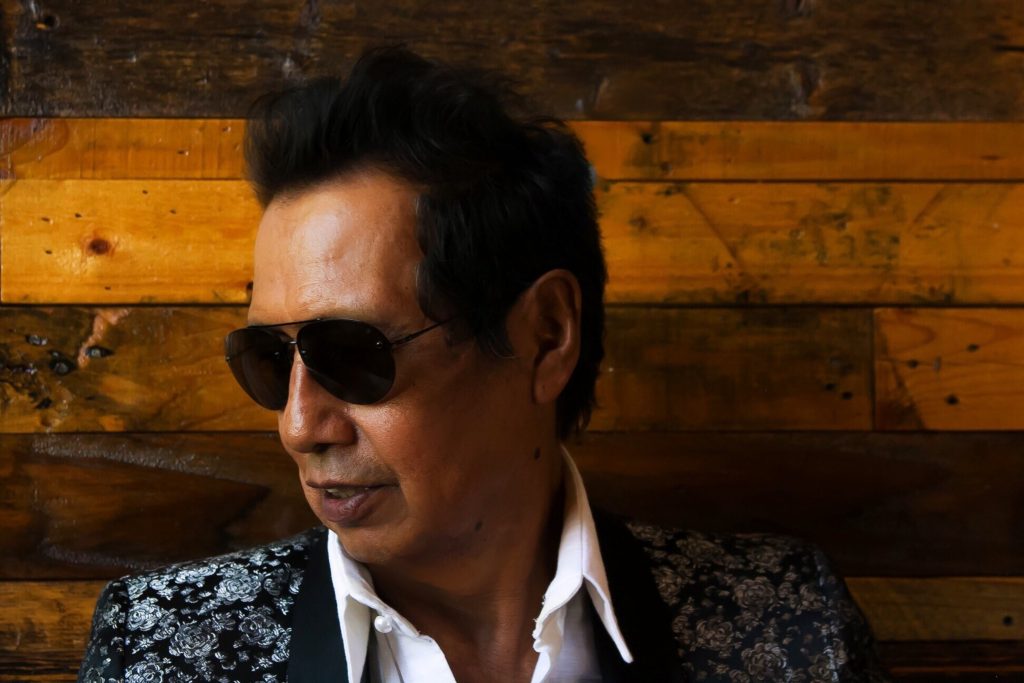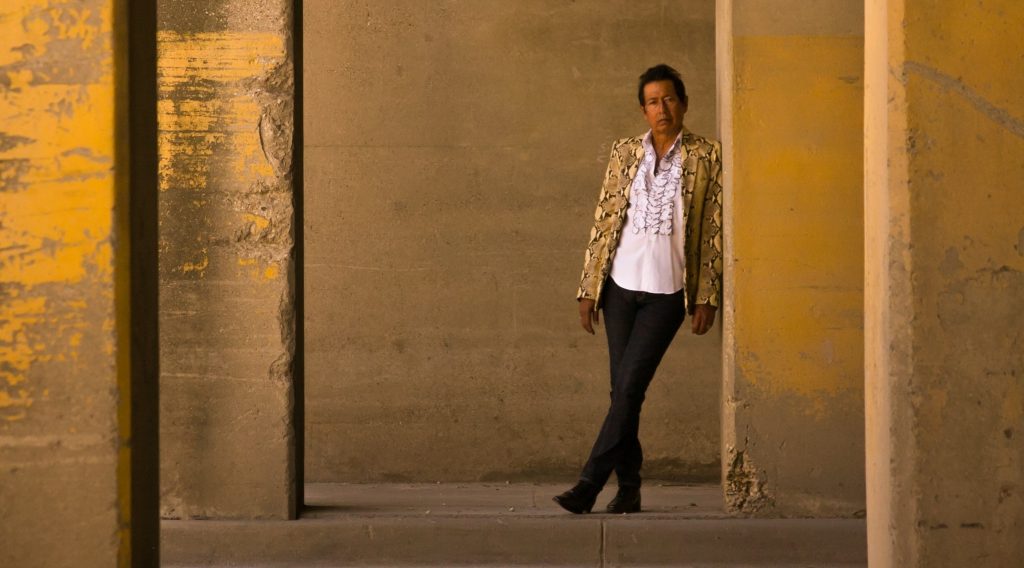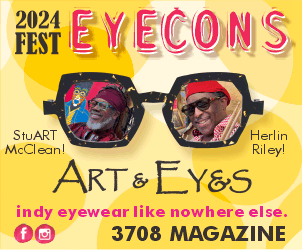Alejandro Escovedo has learned, better than many, how to stand on his own two feet. Whether those feet are planted at center stage or in the middle of a hurricane, the scrapes on his soles show in the soul of his music.
Escovedo tells of his learning curve in his recently released album, Burn Something Beautiful. Since 2002, Escovedo has survived Hepatitis C, Hurricane Odile and, at the ripe age of 66, many of his rock n’ roll friends. His experiences with Hepatitis C and Hurricane Odile, in particular, left Escovedo struggling to play music due to their physical and psychological repercussions, including a brand new case of stage anxiety that appeared after making through the storm in Mexico in 2014.
The album plays like a lyrical expression of Escovedo’s personal guide on how to survive a life that he views as exceedingly fragile, discovered and documented in partnership with Peter Buck of R.E.M. and Scott McCaughey of The Minus 5, and produced by Bill Bentley, who has worked with the likes of Neil Young and ZZ Top.
From a musical family, the San Antonio-born artist began his career in the 1970s, playing with the The Nuns in San Francisco and opening for the Sex Pistols for their final performance in 1978. He eventually made his way back to Texas in the 1980s, where he played with Rank and File and True Believers. Escovedo did not release a solo album until 1992, at age 41. Since his solo debut, he has continued to release critically-acclaimed music like the popular song “Castanets,” which he refused to play after it made President George W. Bush’s top ten playlist. The song only returned to his live performance repertoire after Bush left office.
You can hear the Alejandro Escovedo Band and Pat Puckett on Saturday, July 1 at Chickie Wah Wah. Before making his New Orleans stop, Escovedo took time to speak with OffBeat.
How is your tour going to far?
Oh, it’s been going great. We are at the tail end of it… Yeah, we’ve had some great shows. We are down in Jacksonville Beach, Florida today. We have a few more Florida shows, then New Orleans, then we go home for a day in half, then we fly to Europe.
So, you started your career playing in bands before going solo. Do you prefer playing solo or in a band with someone?
Well, I’ve enjoyed both actually. I’ve played in bands for the larger part of my life so its always been—it’s always great when you have a great bunch of guys and girls and you can put together a really good sounding outfit, you know. It’s also really great when you can kind of go out on your own and just stand up and play guitar and play solos and stuff. It’s a pretty rewarding feeling. … With the solo show, you have a lot more freedom in a way because you’re not confined to the structure of the song so much and you can stretch the melodies, slow them down, you can do it however you, you know, care to perform them. So, with a solo show you find that you have a little more space to work with.
You’re from a very musical family. Did any inspiration come from your family?
Oh yeah. My father was a big influence on me as was my older brothers, my brother Javier. You know, I’d have to say mostly my father and my older brothers were the biggest influence on me.
How did they influence you?
In everything from how they dress and present themselves to—my older brothers are Latin and Jazz musicians, so they played with larger orchestras, so I learned a lot from them about arranging music and playing bands together and different towns. I think it broadened my interests as far as collecting records and listening to different types of music. They were certainly very influential.
You are working on a cancer awareness campaign project?
Yeah, for the Prevent Cancer Foundation. It’s called thinkaboutthelink.org is the website where you can get information. I’ve become the spokesperson for Prevent Cancer Foundation and it’s been a real honor and I can finally do some PSA’s in English and Spanish, you know.
I don’t know if you know that I was, I had Hepatitis C for many years and dealt with that. I’m fortunate that I didn’t get cancer from it. A lot people aren’t aware of the link between Hepatitis B, Hepatitis C and HPV, as far as cancer is concerned. What we are trying to do is to spread awareness for that so people will go get tested and get some prevention so that people won’t have to face the horrific struggle with cancer.
I read about your experience with the storm Hurricane Odile in Mexico and the struggles you kind of had after that. I’m curious how you learned to managed that stage anxiety.
Well, it’s funny that you would ask because, before we began this tour, my wife and I went to Mexico to kind of retrace our steps through the whole experience. We visited all the friends who had helped us. We went out to dinner with all of them them and talked with them. We just tried to even stay in the room we were staying in when the Hurricane landed on us. And it was a really wonderful experience. We talked to a lot of friends and people we had seen days before the whole thing went down. It was very healing for us to see that, so we are very happy. It reinforced our love for that part of the world and we plan on returning. We even went out on the St. Cortez. Going out on a boat in the ocean was a big deal for us, but we did it and we are very happy that we did.
It’s one of those life changing experiences, you know. It reinforced the relationship that my wife and I have, and it reinforced our sense of love for family and friends and I think it just made us feel like, once again, it was a very intense reminder that life is short and fragile and to make the most of it. And so I think it just gave us a little more energy. But, I think this trip that we just took was really special and that’s what really made the difference.
I guess you never truly move on from things like that, but did the trip help you cope with it better?
I’m not so sure that you move on, but what you do is you become—you relive the experience again in order to kind of shed the fear I think is more to the point. It’s funny, it affects you in weird ways. My wife was more sensory sensitive after the hurricane. The sound of running water, the sound of waves, the sound of the wind would affect her in a way. And, for me, it was different things. It really dredged up a lot of feelings from when I was a kid and situations that I had gone through in my life, so it brought a lot of this stuff back. So I kind of had to deal with those kind of things, and that was different.
Is there any particular reason you chose to add a sadder tone in the melody and in the lyrics of your last album?
Yeah the whole album is really based around the experiences that Pete and Scott and I had throughout that year prior to making the record. Of course, for Nancy and I, it had a lot to do with the hurricane. So that definitely shows itself in the making of the record, the lighting of the record most definitely.
It took time for people to consider your music as “rock n’ roll” music. How can you explain this?
The music business and the world in general has a very peculiar way of interpreting—-they want to pigeon hole you right away. So my name did not lend itself to rock n’ roll, right? And so, immediately, I would always be cornered into—when I would go into a record store, when my first solo records came out, they were never in rock, they were always in world beats, salsa, latin, Mexican, international, everything but rock n’ roll, you know. And when I was on this label called Rykodisc, when they were trying to get me on the radio, radio programmers would say, “We can’t even pronounce his name. How can you expect us to play his music?” Or they would say, “We already have one Mexican band, Los Lobos. We don’t need another one.” Various things like that. In other words, there’s a lot of racism in the world, and I think that sometimes shows itself in being unable to accept the fact that someone like myself can play rock n’ roll music.
I’m from Texas, and I know there’s a huge hispanic culture there. Did you experience more or less resistance in Texas?
It was a lot less in Texas, a lot less in Texas, a lot less in Texas. Because there the cultures are kind of the same in a way. Even though they may be divided at times, I think that you know, Texas was Mexico. It’s basically occupied Mexico. So a lot of that is in everything that is Texan. The names of the cities, the names of the streets, the language, Spanish, is very prevalent in Texas.






